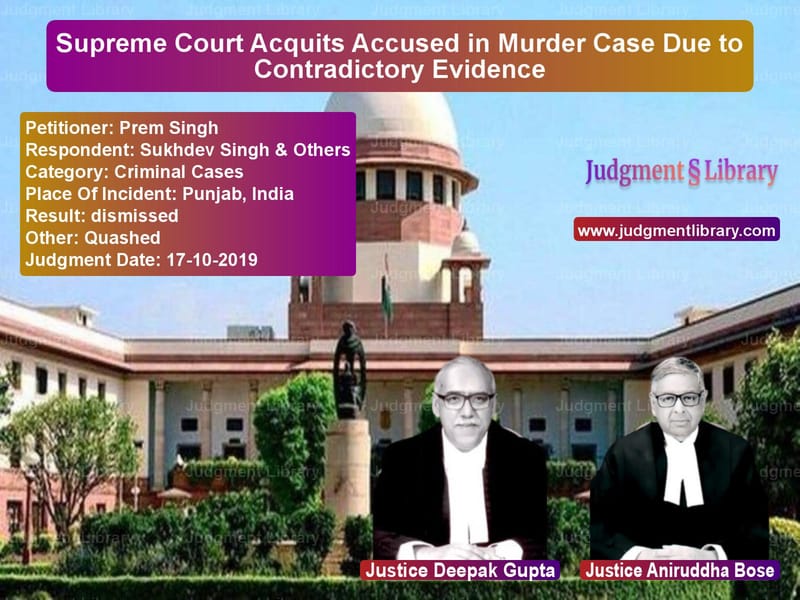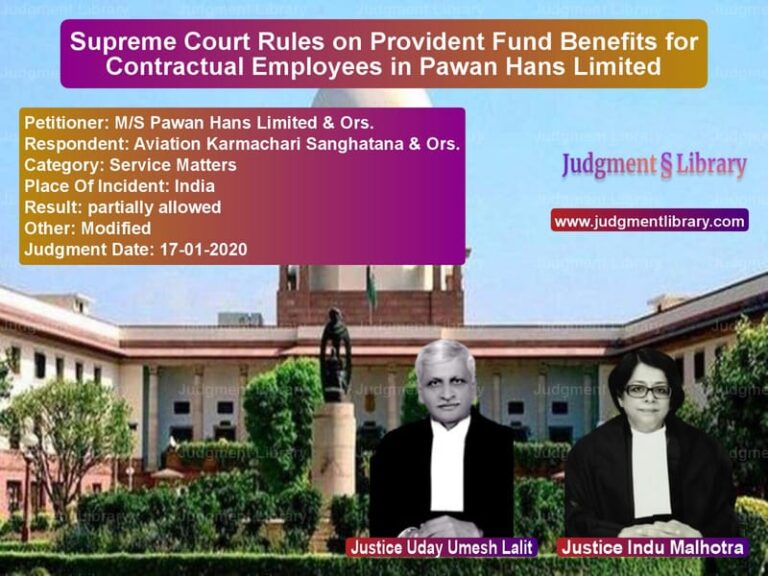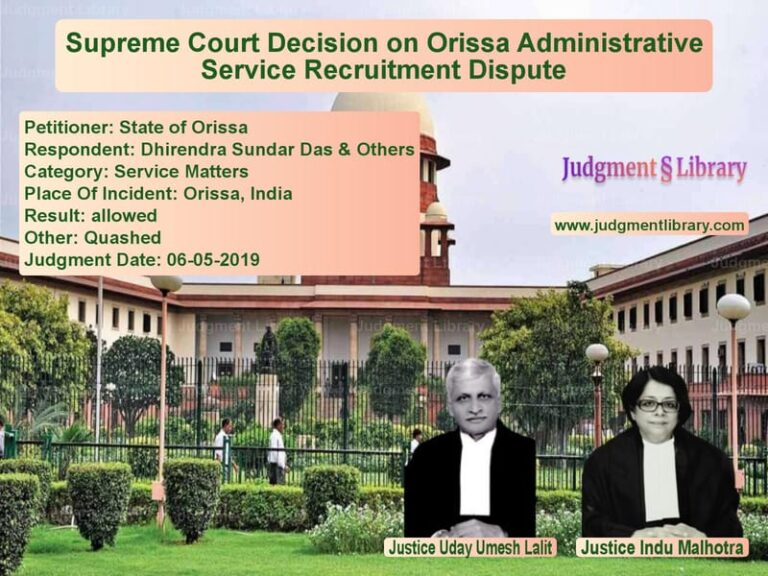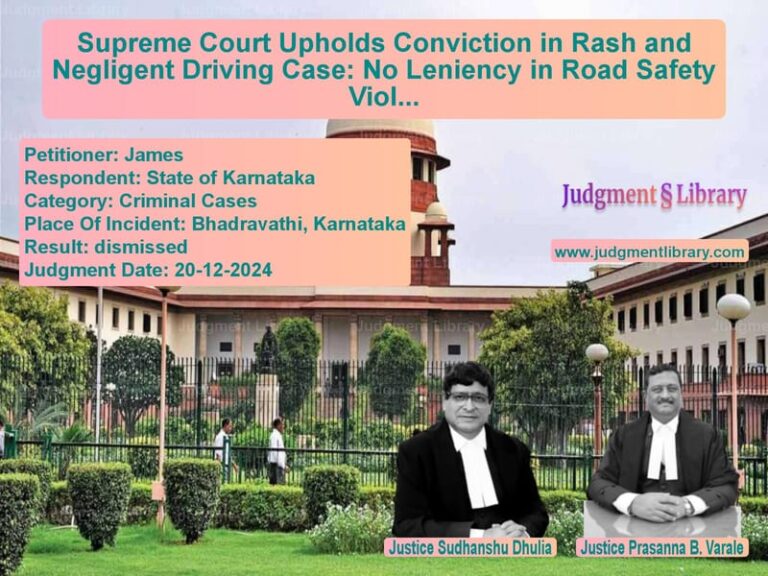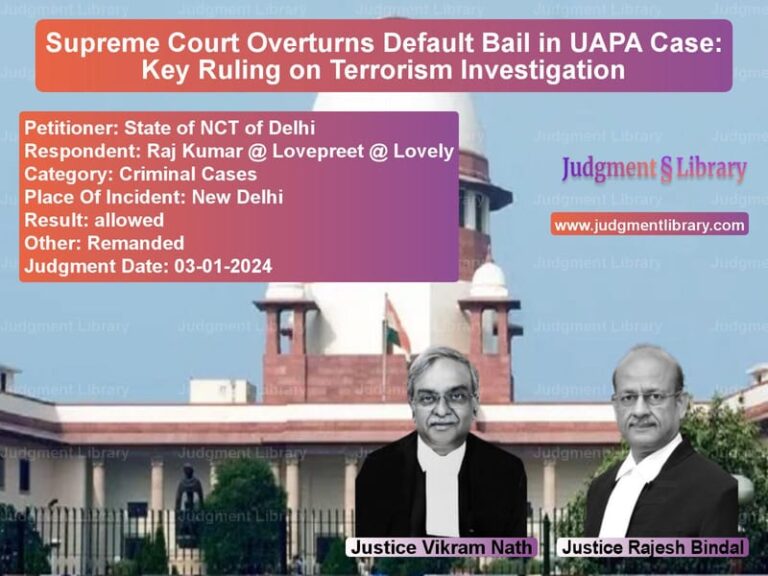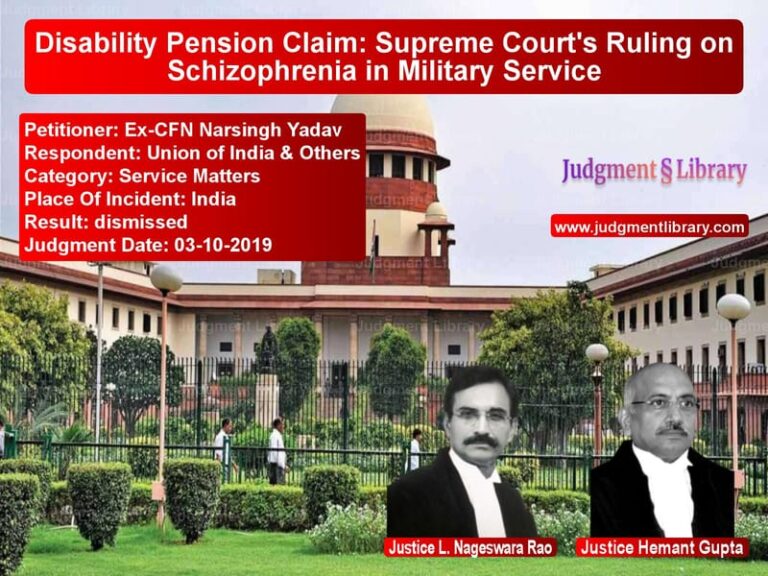Supreme Court Acquits Accused in Murder Case Due to Contradictory Evidence
The case of Prem Singh vs. Sukhdev Singh & Others involved a brutal murder allegedly committed due to a land dispute. The Supreme Court was tasked with evaluating whether the conviction by the trial court was justified or if the High Court’s acquittal of the accused was appropriate. The key legal issue in this case was the reliability of the prosecution’s evidence, particularly eyewitness testimony versus medical and forensic findings.
Background of the Case
The incident occurred on May 25, 2005, in Punjab. The complainant, Prem Singh, reported that a violent altercation took place outside a hospital in Lopoke. His relative, Satinder Pal Singh, was allegedly attacked and killed by the accused. The prosecution claimed that the attack was premeditated and stemmed from a long-standing land dispute.
The trial court convicted the accused under Sections 148, 302/149 of the Indian Penal Code (IPC) and Section 25 of the Arms Act, sentencing them to life imprisonment. However, the High Court overturned the conviction, citing inconsistencies in the prosecution’s evidence.
Petitioner’s Arguments
Prem Singh, the petitioner, argued:
- The FIR was lodged within two hours of the occurrence, naming all the accused, leaving no room for fabrication.
- The two main eyewitnesses, Prem Singh (PW-1) and Major Singh (PW-2), provided a consistent account of the attack.
- The accused used firearms and sharp weapons, as indicated in the autopsy report.
- The accused had a motive for murder, given the long-standing land dispute.
Respondents’ Arguments
The accused, represented by their counsel, countered:
- The medical evidence contradicted the eyewitness statements.
- Forensic examination revealed that the alleged knife wounds were post-mortem, which undermined the prosecution’s version of events.
- The prosecution failed to send the seized firearms for ballistic examination, creating doubts about their claims.
- The delay in seeking medical attention for the victim raised suspicions about the accuracy of the witness statements.
Supreme Court’s Observations
The Supreme Court thoroughly examined the inconsistencies in the prosecution’s case. The key observations were:
“The version of the eye-witnesses that knife blows were given first is falsified by the testimony of the medical expert, who stated that the injuries caused by a sharp-edged weapon were post-mortem.”
The Court noted the following:
- The prosecution’s failure to reconcile medical evidence with eyewitness accounts raised serious doubts.
- There was no forensic proof linking the accused’s firearms to the murder.
- Instead of immediately taking the victim to the hospital, the complainant first went to a milk chilling center to report the crime, which was an unusual behavior.
Final Verdict
The Supreme Court upheld the High Court’s decision and acquitted the accused, ruling that:
- The prosecution’s case was not reliable due to medical contradictions.
- The benefit of the doubt must go to the accused when two versions of events exist.
- The failure to collect proper forensic evidence weakened the prosecution’s argument.
- The trial court had erred in convicting the accused solely on the basis of eyewitness testimony, despite contradicting medical evidence.
Legal and Policy Implications
The judgment highlights critical legal principles:
- Medical evidence vs. Eyewitness Testimony: Courts must carefully balance medical reports against witness statements.
- Burden of Proof: The prosecution must provide a coherent and consistent case beyond a reasonable doubt.
- Forensic Evidence: The absence of proper ballistic examination can significantly weaken criminal cases.
- Credibility of Eyewitnesses: Contradictions in witness testimony can lead to acquittals, reinforcing the necessity for meticulous cross-examination.
Conclusion
The Supreme Court’s ruling in this case reinforces the fundamental principle that criminal convictions must be based on clear, consistent, and corroborated evidence. By acquitting the accused, the Court ensured that legal standards of proof were upheld, emphasizing the importance of forensic and medical evidence in criminal trials.
Petitioner Name: Prem Singh.Respondent Name: Sukhdev Singh & Others.Judgment By: Justice Deepak Gupta, Justice Aniruddha Bose.Place Of Incident: Punjab, India.Judgment Date: 17-10-2019.
Don’t miss out on the full details! Download the complete judgment in PDF format below and gain valuable insights instantly!
Download Judgment: Prem Singh vs Sukhdev Singh & Othe Supreme Court of India Judgment Dated 17-10-2019.pdf
Direct Downlaod Judgment: Direct downlaod this Judgment
See all petitions in Murder Cases
See all petitions in Bail and Anticipatory Bail
See all petitions in Custodial Deaths and Police Misconduct
See all petitions in Judgment by Deepak Gupta
See all petitions in Judgment by Aniruddha Bose
See all petitions in dismissed
See all petitions in Quashed
See all petitions in supreme court of India judgments October 2019
See all petitions in 2019 judgments
See all posts in Criminal Cases Category
See all allowed petitions in Criminal Cases Category
See all Dismissed petitions in Criminal Cases Category
See all partially allowed petitions in Criminal Cases Category

